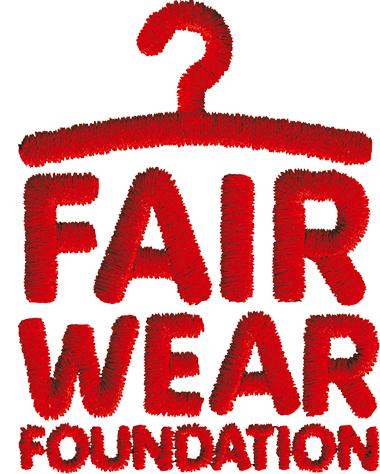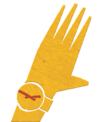Concerning labour standards:
The case
At the beginning of 2018, the Helsinki Committee received a complaint from a worker who had recently resigned from a factory supplying HAVEP. The worker lodged a complaint and processed it to the local focal point/ legal adviser of the Helsinki Committee and informed that while he/she was working at the factory, workers worked overtime (every Saturday), but the overtime was not paid. The Helsinski Committee informed the Labour Inspectorate and submitted a request for investigation. This was followed by the Labour Inspectorate with an extraordinary inspection in July and it was concluded that the accusations were valid. The Helsinki Committee was not aware for how long the workers had not been paid for overtime. The existing problem related to payment of overtime was confirmed by another worker who still worked at the factory. The Labour Inspectorate issued a penalty to the factory owner and the owner had the responsibility to pay the penalty.
This complaint case was published by local media in Macedonia. FWF decided to take the complaint case up as a formal complaint case, as it directly related to the FWF's Code of Labour Practices (CoLP) and a factory supplying a FWF member brand.
On 18 September 2018, FWF organised a meeting with the Netherlands Helsinki Committee with the objective to confirm the applicability of the complaint and identify the remediation steps needed. The representative of the Helsinki Committee stated that the issue of non-payment of overtime hours was still present at the factory, as they had checked once more with the same worker after the factory visit by the inspector. Based on this meeting, FWF decided to start the investigation process.
Overview of the complaint investigation
11/03/2018 Investigation
The visit of the factory was organised by FWF on 3 November 2018.
The objectives of the visit were:
- To investigate whether the payment of the overtime hours was respected and improved in the last three months (after official non-compliance was found in the factory by the National Labour Inspectorate)
The investigation included a field visit where the complaint was inspected through:
a) Interview with Management regarding the actual complaint;
b) Document inspection/wage lists and supporting documents related to the wages
c) On-site interviews with the factory's trade union
Prior to the visit, the local representative of HAVEP was contacted by FWF's complaints handler and the visit to the factory was announced.
11/05/2018 Conclusion of the investigation
The change in the number of working hours for the last two months is confirmed by the documents and workers representative. The policy on working hours was enclosed to confirm. Official working hours in the factory are from Monday to Saturday from 07:00-14:00, or a total of 42 working hours per week. According to the legal requirements, the regular working week is 40 hours. Every hour above this is considered as overtime.
Overtime working hours in the factory are reduced from 8 to 2 overtime working hours per week. Although the overtime working hours are decreased, when they occur (2 hours every Saturday) they are not recorded in the payslips and it is not clear how they are paid. In this regard, the factory has adopted a new policy for the reorganisation of the working hours for the workers, prescribing that overtime hours per week (2 OT per week) will be compensated in one day off per month. The policy was enclosed for consideration and it is in line with article 124 of the Labour Law. Although the policy was published on the information board, it was not clearly communicated to workers and did not specify by when the compensatory days should be used.
Recommended remediation steps for the confirmed findings:
• The policy on working hours needs to be redrafted and aligned with the legal requirements (regular working hours cannot be over 40 hours per week);
• The factory needs to start reporting on the number of exact working hours per month in the payslips as handed out to workers;
• The policy on compensation for working hours needs to specify by when the compensatory days should be used; this needs to be clearly communicated and explained to workers as soon as the policy is effective;
• Overtime working hours need to be clearly administrated: when they occur and when they are used as compensatory hours. The factory administration needs to design a system and follow up on how the use of OT will be communicated in writing to the workers and in the related wage documents (e.g. payslips)
03/13/2019 Remediation
The investigation report was shared with the FWF member brand who followed up on remediation. The recommended actions were undertaken on 13 March 2019. HAVEP provided the following status update:
- The factory redrafted its policy on working hours as per 28 January 2019. The official working hours are now 07:00-15:00 from Monday to Friday. This means that there is no more ‘regular’ work on Saturdays.
- If workers work on Saturday (exceptional cases) this is registered as overtime and paid.
- The factory changed its salary administration software.
- The exact working hours per month are reported on payslips (evidence is available and checked by HAVEP)
- Overtime hours are administrated and paid (evidence is available and checked by HAVEP)
Supporting documents were sent to HAVEP and the situation will be verified by FWF during the verification audit scheduled for May 2019.












